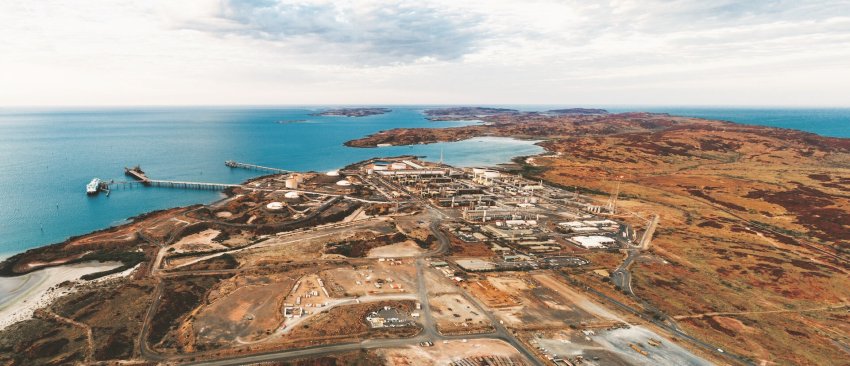
The bushfire emergency has not slowed the bipartisan charge to push the planet over the climate catastrophe cliff.
In the waters off the Pilbara Coast, in Western Australia, Woodside, Chevron, BHP and Shell are planning to open up new gasfields connected to a processing plant known as the Burrup Hub. If completed, this would be the most environmentally damaging project in Australia’s history.
The gas industry is already WA’s biggest polluter, pumping out 32 million tonnes of carbon dioxide a year. The rise in production over the past 15 years has already caused WA’s emissions to skyrocket, undoing all the carbon pollution reductions across the rest of Australia.
Research by the Conservation Council of WA (CCWA) shows the proposed expansion would lock in fossil fuel extraction until 2070 — pumping out 139 million tonnes of carbon dioxide a year, four times higher than those from the controversial Adani Carmichael coal mine in Central Queensland.
Based on Scope 3 emissions — emissions from production through to those emitted at the point of consumption — the project would be the equivalent of 30 coal-fired power stations.
The proposed capacity for the processing plant indicates that companies are relying on fracked and other onshore gas being piped to it. Once built, they will demand fracking starts up to feed their monster.
Woodside, the project’s chief proponent, claims in its public relations blurb that it intends its operation to be net zero emissions by 2050. The WA Labor government recently announced the same meaningless “aspirational” target.
Early last year, the WA Environmental Protection Authority proposed requiring 100% offsets for all existing gas projects — which would only cost the big oil and gas corporations 1.5% of their profits — but this was taken off the table under orders from Premier Mark McGowan after Woodside and The West Australian ran a frantic campaign demanding the policy be scrapped.
Labor’s capitulation is all the more incredible given how little the industry pays in taxes and royalties: absolutely none are yet payable on the newest projects. The industry pays an effective tax rate of 2.5%, meaning we give much of this resource to the big oil and gas companies for free.
Western Australians are told to be grateful for the jobs and investment these companies make. But the industry directly employs just under 12,000 people and much of its infrastructure is manufactured overseas.
Meanwhile, the CCWA calculates that the Burrup Hub will leave taxpayers with a $17 billion pollution bill.
The industry and its Labor-Coalition servants believe in two possible climate change scenarios.
One is that, while the rest of the world cuts emissions, Australia can get away with betraying humanity and the planet by polluting and making money from fossil fuel exports.
Alternatively, they assume that 4oC of warming will happen and, so what if a large majority of the world’s peoples and ecology are wiped out as long as the billionaires and their hangers-on survive.
This is not hyperbole. Chairperson of oil and gas company Santos Peter Coates said 4o of warming is “sensible” at the company’s Annual General Meeting in 2017.
All the measures we need to take to stop catastrophic global warming are things we need to do anyway: sustainable agriculture; expanded public transport; 100% renewable energy; and sustainable jobs promise a better life for all. Such a transformation is in the interest of humanity, and it’s not too late to halt the fossil fuel death spiral.
People power can and must save the planet. Help Green Left tell that story and build the movement that can do it by becoming a supporter.